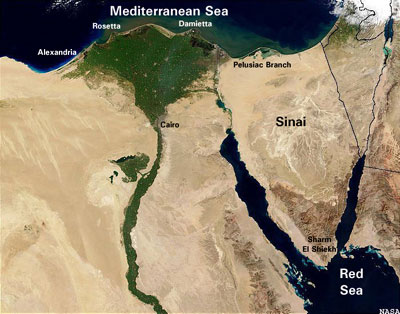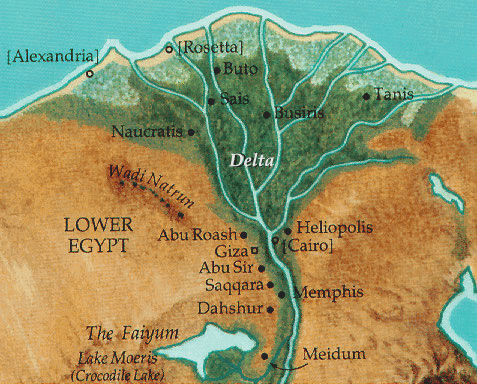© 1998-2014
Fellowship at Cross Creek
Gen. 49.28ff
Going Home!
7.13.14
Intro… Question: What were the Egyptian pyramids all about at the time they were built?
I would be tempted to ask and or explore some of the whys of how we observe or honor death or a person’s passing away. Why do we do what we do at the time of a loved one’s passing? Are these good things or not? Which ones tend to connect with you more? Which ones less and why? Why does observing death tend to get such a free pass concerning form following function or the preserving or regarding certain traditions?
Now put what the pharaohs did, along with what we do today, in context with what was actually taking place with Jacob’s body being returned to Canaan? How does all this compare to God’s children and their final Spiritual reward?
Recently, we began a new unit or section or person of, study…the life of Joseph. Essentially, the story of Joseph, is for the most part, our story. Chosen by God for a special purpose, Joseph must first endure much suffering and injustice before arriving at his God-ordained purpose and calling, and what a purpose it will be.
As we read, I want you to continue pondering, your special identity in Christ, and that just because you may be going through difficult days, your suffering…your waiting is NOT in vain. As God’s child…as God’s children, just as with Joseph and his brothers, you…we…all have a purpose in Christ (Romans 8; Eph. 1; 1 Peter 1).
Your servant,
jc
Series INTRO…
The Bible’s very first word is the Hebrew word Bərēšīṯ, which means “in [the] beginning.” “Genesis” is actually the Greek word for “beginnings” or “origins,” and thus the origin for both the Latin and English transliteration: Genesis.
So what’s our goal? Just to explore. Like an archaeologist exploring ancient ruins, we are going back to the Scripture’s beginnings to do a little Spiritual digging and poking around to see what was God doing before God’s Son was Spiritually conceived in his mother Mary’s womb? What were the world, people and life like from the very beginning?
Summary of Recent Explorations…
• The Creation: The Creator Creates His Creation and its Caretakers (Adam and Eve). Gen. 1-2.
• The Fall: But a Crafty Adversary Emerges, Infecting the Creator’s Caretakers with a Virulent Strain of Deceptive Evil (non-beneficial actions). Gen. 3-4.
• The Flood: The story of the righteous Servant and a devastating Flood. In order to Save his Creation from a self-destructive and merciless evil, the Creator Must radically purge or cleanse his Creation Gen. 5-7.
• Creation’s New Beginning…Gen. 8-11.
• Creation’s New Caretaker: The Creator Raises up, Chooses and Greatly Blesses a righteous and trusting Caretaker named Abraham. Gen. 12-25.
• The Torch of the Creator’s Trusting Caretaking Now Passes to Succeeding Generations (Isaac, Jacob, Joseph…) Gen. 26ff.
Joseph’s Story…Gen. 37-50.
• Jacob’s older sons grow deeply resentful of their favored younger brother, Joseph. Gen. 37:1ff.
• Joseph’s jealous older brothers cruelly sell their younger brother Joseph, against his will, into slavery, and then inform their grieving father, Jacob, that Joseph has been killed by wild animals. Gen. 37:12ff.
• Despite being trafficked as a slave and falsely imprisoned, God’s favor mysteriously still accompanies Joseph. Gen. 39:1ff.
• Despite correctly interpreting the baker and cupbearer’s dreams while in prison, Joseph’s good deeds, go momentarily unrewarded. Gen. 40:1ff.
• Finally, when Pharaoh has two strange dreams that neither he, nor his priests, can’t interpret, the cupbearer remembers Joseph. Joseph is released from prison and is able to interpret Pharaoh’s dreams as seven years of plenty followed by seven years of severe famine. Gen. 41:1ff.
• Pharaoh empowers Joseph to guide Egypt through these next fourteen years of plenty and famine. Gen. 41:38ff.
• When Joseph’s brothers come to Egypt in search of grain, they have no idea that the Egyptian official that they are seeking to purchase the grain from is their brother Joseph. Then still portraying himself as an unknown Egyptian official, Joseph accuses his brothers of spying and forces them to leave their brother Simeon behind as surety that they will return with Joseph’s brother Benjamin. Gen. 42:1ff.
• When Jacob’s sons tell him of the bargain that they were forced to accept for their grain, Jacob initially refuses to risk losing a third son. Gen. 42:19ff
• Finally, accompanied by Benjamin, Joseph’s brothers are able to persuade their father to allow them to return to Egypt where the Egyptian official hosts a great banquet in their honor. Gen. 43:1ff.
• When a planted missing missing silver cup of the Egyptian official is found within Benjamin’s grain sack, Judah must now offer himself in place of his younger brother. Gen. 44:1ff.
• Finally, no longer able to contain his emotions, Joseph finally reveals himself to his brothers and their need to return to Egypt with their father to survive the famine. Gen. 45:1ff.
• Pharaoh, in gratitude for all that Joseph had done for both Egypt and his realm, offers Joseph’s family, the children of Israel, the best that Egypt has to offer. Gen. 45:16ff.
• With God’s blessing Israel takes his entire family and flocks to Egypt where he is reunited with his son Joseph and settles in the land of Goshen. Gen. 46:1ff.
• Israel, close to his death, makes Joseph swear that he will return his body to in the Promised Land to be buried. Gen. 47:1-12; 27-31.
• During the famine, Joseph saves many lives from starvation, as well as, solidifying Pharaoh’s great wealth. Gen. 47:13-26.
• Jacob, shortly before his death, doubles Joseph’s inheritance by adopting Joseph’s two oldest sons. Gen. 48:1ff.
• Jacob (Israel) prepares to die and prophetically blesses his 12 sons. Gen. 49:1ff.
Pray; read three times (perhaps just twice) and ask questions…
49:28 All these are the twelve tribes of Israel, and this is what their father said to them when he blessed them. He blessed them, every one with the blessing appropriate to him.
Note: these blessings, listed in vv. 1-27, are not necessarily that easy to understand or interpret, especially for younger children, so I am bypassing them for the moment. It is interesting to note that v. 28 clearly says “with the blessing appropriate to him.” Are we to assume that these blessings are divinely-inspired? And what was their purpose? Did the sons really understand them, and or did it really matter, as long as they were receiving a blessing from their Father? Is this the Abrahamic Covenant split 12 ways? Is this similar to the blessing that according to custom was to go to his older brother, Esau, but Jacob himself deceived his father Isaac out of?
29 Then he charged them and said to them, “I am about to be gathered to my people; bury me with my fathers in the cave that is in the field of Ephron the Hittite, 30 in the cave that is in the field of Machpelah, which is before Mamre, in the land of Canaan, which Abraham bought along with the field from Ephron the Hittite for a burial site. 31 There they buried Abraham and his wife Sarah, there they buried Isaac and his wife Rebekah, and there I buried Leah- 32 the field and the cave that is in it, purchased from the sons of Heth.”
Note: Gen. 23 and 25 record not only the legal purchase of the cave, but both Sarah and later, Abraham’s burials. Isn’t it interesting that Rachel was not buried here as well, but at Ephrath (Bethlehem) where she was headed to with Jacob and the rest of his family from Bethel when she died giving birth to Benjamin (Gen. 35:16ff).
33 When Jacob finished charging his sons, he drew his feet into the bed and breathed his last, and was gathered to his people.
50:1 Then Joseph fell on his father’s face, and wept over him and kissed him.
2 Joseph commanded his servants the physicians to embalm his father. So the physicians embalmed Israel.
Was this so his body could be carried back to the cave at Mamre to be buried without decaying, and wasn’t this what the Egyptians did to the Pharaoh’s bodies when they died? So in essence, wasn’t Jacob, in his death, being treated much like a Pharaoh?
3 Now forty days were required for it, for such is the period required for embalming. And the Egyptians wept for him seventy days.
This is a great loss, and even the Egyptians are mourning his loss. No doubt, Joseph, being Jacob’s son, leads to Jacob being treated like a god or pharaoh himself in death.
4 When the days of mourning for him were past, Joseph spoke to the household of Pharaoh, saying, “If now I have found favor in your sight, please speak to Pharaoh, saying, 5 ‘My father made me swear, saying, “Behold, I am about to die; in my grave which I dug for myself in the land of Canaan, there you shall bury me.” Now therefore, please let me go up and bury my father; then I will return.'” 6 Pharaoh said, “Go up and bury your father, as he made you swear.”
7 So Joseph went up to bury his father, and with him went up all the servants of Pharaoh, the elders of his household and all the elders of the land of Egypt,
This memorial only becomes grander and grander. The father of Joseph has died and is to be buried back in his own land. Amazing.
8 and all the household of Joseph and his brothers and his father’s household; they left only their little ones and their flocks and their herds in the land of Goshen.
9 There also went up with him both chariots and horsemen; and it was a very great company.
10 When they came to the threshing floor of Atad, which is beyond the Jordan, they lamented there with a very great and sorrowful lamentation; and he observed seven days mourning for his father.
If the funeral procession crossed the Jordan, does this imply that it proceeded on much the same route that the Children of Israel would take four hundred years later, thus entering the Promise Land from the east, perhaps even crossing the Jordan near Jericho?
11 Now when the inhabitants of the land, the Canaanites, saw the mourning at the threshing floor of Atad, they said, “This is a grievous mourning for the Egyptians.” Therefore it was named Abel-mizraim, which is beyond the Jordan.
Note: Abel Mizriam…means “the mourning of Egypt.”
12 Thus his sons did for him as he had charged them;
13 for his sons carried him to the land of Canaan and buried him in the cave of the field of Machpelah before Mamre, which Abraham had bought along with the field for a burial site from Ephron the Hittite.
14 After he had buried his father, Joseph returned to Egypt, he and his brothers, and all who had gone up with him to bury his father.
Who?
Where?
When?
What?
• After prophetically blessing each of his 12 sons with a blessing that appropriately fit each of them and instructing his sons to bury his body after he dies in his family’s burial tomb back within the Promise Land, Jacob (Israel…the one who wrestled with God and survived) now dies.
• After his father dies, Joseph hugs his father’s face, weeping over him and kissing him.
• Then Joseph has the embalmers to embalm the body of his father, which takes about forty days.
• After all of Egypt mourns Jacob’s loss for seventy days, Joseph asks Pharaoh if he can take his father’s body back to Canaan to be buried in the tomb of his fathers?
• Pharaoh agrees, with Egypt giving Jacob a funeral process back to Canaan equal to that of perhaps Pharaoh himself.
• Finally, after having arrived back in Canaan, the sons of Israel, fulfill their father’s final request and bury their father in his family tomb
Summary: After blessing his sons, Jacob dies, and his sons fulfill his wish to take his body back to Canaan to be laid along side the bodies of his fathers.
Why did God include this event in his record or what would we not know–about God, life, myself, others, etc.–if this story were not in the Bible?
• By making his sons promise to take his body back to Canaan, one can sense the tenacity of the man who 1) connived from his older twin brother and father his older twin’s birthright and blessing, as well as, 2) most of his father-in-law’s wealth and flocks, despite his father-in-law’s own conniving and 3) after having lost his own son, Joseph, once again, having found him. Israel was not to be denied God’s promises to him or his heirs. In essence, his body would serve as GPS beacon calling his children back home over four centuries later. Jacob knew what he was doing. Jacob was indeed a driven Spiritual survivor.
• One can sense the deep grief that Joseph experienced for his father at his father’s death.
• Jacob (Israel), despite being a shepherd all his life, in his death, he was treated like a king as his body is returned to Canaan accompanied by a royal entourage.
So What?
Thanks… Have spent the week with my wife and daughter, touring portions of Missouri that we had seen before and portions that we have never seen, and in doing so, have partially retraced the Confederacy’s last failed military campaign in Missouri on its 150th anniversary. Amanda wanted to see the campground and swimming hole that we vacationed at when the kids were young at Johnson Shutins.
After that, we drove up to St. Louis, went to the St. Louis Zoo, toured the beautiful Missouri Botanical Gardens, the grand cathedral or Basilica of St. Louis with the largest collection of Byzantine mosaic tile in the world, the federal courthouse in downtown St. Louis where the famous Dred Scot decision was rendered before the Civil War, as well as, the St. Charles historic district on the Missouri River just up from the St. Louis. We also saw the Cardinals, with a walk off home run in the bottom of the ninth, defeat the Pirates at Busch Stadium. Then we followed the Missouri River west through Babler State Park and the historic towns of Washington, Hermann, Jefferson City, Columbia, Boonville and Kansas City. In Kansas City, after eating wonderful barbeque at B. B.’s Lawnside Bar-B-Q and driving through some older beautiful neighborhoods south of the Plaza, we retraced a portion of the South’s last hurrah in Missouri, the Battle of Westport.
It begins back in the mountains near Johnson Shutins, at nearby Pilot Knob. In the early fall of 1864, Confederate Gen. Sterling Price, the hero of the Civil War’s first major battle at Wilson’s Creek in 1861, becomes momentarily distracted from his very achievable objective, the strategically-invaluable city of St. Louis, with a small Union earthen-wall armory called Fort Davidson. When Price’s army fails to take the earthen fort in a timely manner, the Union commander blows up the armory’s valuable armaments in the middle of the night and begins to retreat across Missouri. In the end, Price will end up being the pursued. One of his last stands will be the major Civil War Battle of Westport. But unlike, Wilson’s Creek or Shiloh or Gettysburg, the Battle of Westport does not have its own military park because it the park would occupy much of Kansas City today. There are a few memorial markers strategically placed through out the city and a partial visitor’s center, but in comparison to other major military parks, nada. It’s almost a crime to the memory of the soldiers who fought in these battles. At the visitor’s center, I did stumble into an expert of Sterling’s entire Missouri campaign and spent more than an hour plying him with all my questions, not only concerning the battle but why is there NO REAL PARK here in Kansas City! I was a kid in a candy store. This guy is actually out there killing poison ivy and trimming branches on his own so he can blaze trails to two of the battle’s hottest spots, Bloody Hill and Byrum’s Ford on the Big Blue River near Swope Park. Incredible! Today it’s the Truman Library in Independence and onto my Aunt Betty’s near Sedalia. Along the way, we have also eaten at some wonderful restaurants. It’s been nice, restful, and yet, still an exploratory adventure with my wonderful wife and daughter. Thank you, Lord.
Struggle(s)…
Truth(s)… Israel’s steadfast hope in God fulfilling his long-term covenant promises to him and his father’s lives even in the grave and beyond; a son demonstrates his deep love and grief for his now deceased father, and in the light of his father’s passing and a grateful foreign power and its people pay their respects to the father of the man who saved their nation from death.
Application… Hope, grief, honor…Great hope, love, grief and honor…all being expressed during a powerfully pregnant moment within human history….the passing of one of the last great biblical patriarchs…and founders of our biblical faith tradition. So how might this passage have anything to do with my puny problems of getting caught up on my writing blog? No doubt from what we have learned in Genesis, God has his own way of catching up history. Life will take its twists and turns. It will have its setbacks, and then just about the time when all appears lost, God saves. God delivers. God redeems. The story of Genesis and particularly Joseph’s story again and again demonstrates to its readers that we need not despair when life takes an unpredictable turn or twist or becomes momentarily stuck. Be faithful. Persevere. Pray, hope, be faithful, love…even hope…and most certainly beyond the grave…because God’s plan is bigger than any one person or lifespan or generation or generations.
Your application:
Biggest Struggle at the moment:
How does what happen here relate to you?
What about your kids?
Biggest Struggles (Imagine these or several–put yourself in their shoes–walk through a day with them at school, at home. What might they encounter?)
Now how does what happen here possibly relate/ (Remember this is only to give you a feel or an introductory hook or a reinforcing took; in there looking, they may come up with something entirely different.)
Remember to have fun, sense the Spirit’s leading and develop a love for these kids.
As always, thanks!
Joe
Scripture quotations taken from the New American Standard Bible®, Copyright © 1960, 1962, 1963, 1968,1971, 1972, 1973, 1975, 1977, 1995 by The Lockman Foundation Used by permission.” (www.Lockman.org).





